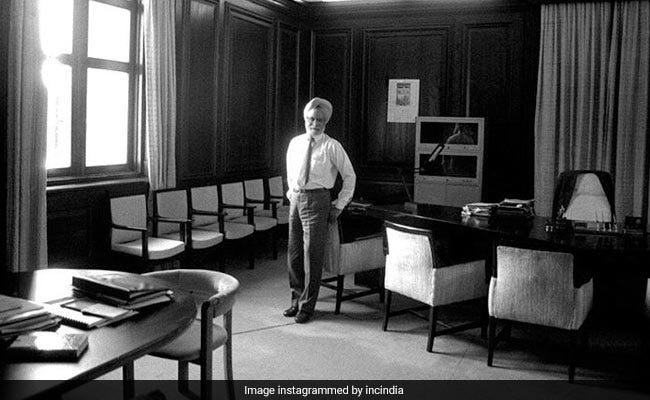Hearing the Victor Hugo quote, I wondered “who’s that”! When he said ‘removing licence raj’, I hadn’t heard of the ‘raj’.
As a 15-year old, a Congressi at heart, I was confused when Mr Charles D’Costa remarked during one history class at school: “… liberalisation is fine, but pledging gold with the IMF… am not sure if that’s a good idea…”.
Was the celebrated economist wrong?
Would all of India’s wealth now be under the sovereign control of ‘foreign forces’? Would, as the left said, push India into a ‘second struggle for independence’?
In the immediate aftermath of Rajiv Gandhi’s cruelly tragic death, there was a sense of despondency across the nation. Was this the right moment for reforms? Would the country weather ‘liberalising’?
Listening to one of the earliest Union budgets - almost the entire country was witnessing strikes and protests against one economic reform or the other - new hope dawned as a host of customs duties and import charges were being slashed one after the other. Headlines read and sounded: “… xxx items would cost less…” (India was in the midst of an inflation surge). Permissions were being granted for businesses to conduct business freely.
Talking to Dr Prannoy Roy during a budget discussion after the 5pm budget, Dr Singh was asked how he could guarantee prices would reduce. He responded by saying: “I cannot place a policeman at every shop to control prices”. The term ‘free market economy’ where the markets determined prices, was taking shape.
Through all the questions and ‘time will tell’ analyses, one thing stood out - the promise of a livelier market environment where we could finally stop our dependence on uncles and aunts from “America” or the “Gelf”, or “Persia”, as was known in village circles. A generation sniffed at the opportunity to finally start getting “phoren” things here in our own backyard.
Irony struck when a candidate of the SFI (the student’s unit of the CPIM) campaigned during the college union elections strongly opposing ‘liberalisation’, its effects, its inflationary tendencies et al, all while sporting a pair of ‘Nike’ shoes.
33 years after the “idea whose time came” was announced by Dr Manmohan Singh, one thing is clear. India weathered the most fundamental of reforms ever, in the history of the country. We are much better off today than we ever were throughout our chequered history.
Liberalisation not just provided us with ‘goodies’ hitherto available only in the Gulf, America and Europe; it provided a generation and many following it a different outlook to professions and work life. Very many different streams of education opened up enabling us to pick up skill sets (we were till then stuck with government jobs). We discovered there were more avenues in life than just being an engineer or a doctor.
Liberalisation also opened our minds, expanded the horizons of knowledge and importantly, insight.
Today the activist is us is treated to the grand democratic facility of RTI (even tho significantly depleted today). MGNREGA was the first major welfare scheme where people were encouraged to work, to be paid for. RTE changed the course of hundreds of thousands of children shifting them from fields of child work, to classrooms. The Indo-US Nuclear Deal has made it possible for many technological advancements in many areas (something that was vehemently opposed).
Millions were lifted out of poverty; those with acumen started and grew their businesses; those ready to work hard tasted success; one of the world’s strongest Middle Class segments was created in India.
In mid 1991 India was staring down the barrel. Lifting its people’s morale, quality of lives and the image of the country, was indeed a tall order akin to that of pursing a huge fourth innings total in a cricket test match.
PV Narasimha Rao and Dr. Manmohan Singh were like an ‘opening pair’ of batters headed out into a minefield of a pitch. Forced to negotiate hard challenges which batters after them could consolidate if there was a good start. They proved a swashbuckling paid who laid a strong foundation for the modern India we see today.
Prime Ministers and Finance Ministers who came after him simply rode the wave. States matched the policies step by step. ‘Infrastructure’ became a household word just as ‘Manmohan Singh’.
As when he correctly predicted a 2% loss to India’s GDP as a fallout of ‘demonetisation’, he saw the future as few others could.
His visionary ideas and thoughts changed India and impacted every single Indian.
“Goal without deadline = Fantasy
Goal + Deadline = Objective
Goal + Deadline + Plan = Intention
Goal + Deadline + Plan + Continuous Action = Success”
Nothing else personifies Dr #ManmohanSingh



